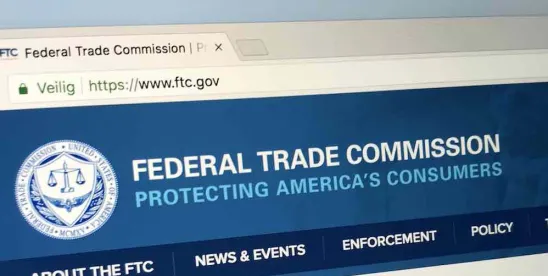Key Takeaways
- The Federal Trade Commission (FTC), now under Republican leadership, has continued its scrutiny of Orange Book listings for device patents, signaling bipartisan concern over potential anti-competitive practices
- Despite new Warning Letters, many of the questioned patents were already delisted or tied to discontinued products, suggesting limited immediate impact on generic competition
- Both branded and generic drugmakers may need to reassess litigation strategies and patent listings as regulatory and enforcement dynamics evolve
During the past two years, we have reported on actions regarding the listing of certain patents in the U.S. Food and Drug Administration’s (FDA) Orange Book for drug/device products where the patents focus on the device aspect of the product.1 During the Biden Administration, the FTC, under Democratic-led leadership, started taking note of what it deemed to be “improper” Orange Book patent listings. With all of the changes being implemented by the Trump Administration and at FTC, an open question remained as to whether the FTC would remain active in this area. We now have at least a partial answer to this question – the propriety of certain Orange Book patent listings will remain a focus of FTC.
Under the Biden Administration, the FTC issued two sets of Warning Letters (on November 7, 2023, and April 30, 2024) to multiple drug manufacturers and FTC commenced so-called patent listing dispute proceedings before FDA. Historically, however, the FDA has treated the listing of patents as an administrative matter and does not challenge the information submitted by the NDA holder. As we noted on July 17, 2024, those proceedings initiated by FTC had a minimal impact, as many of the patents remained in the Orange Book.
However, on December 20, 2024, the United States Court of Appeals for the Federal Circuit held that certain patents that were listed in the Orange Book for an asthma inhaler should have been delisted as the claims in question did not recite the active ingredient. Teva Branded Pharmaceutical Products R&D, Inc. et al. v. Amneal Pharmaceuticals of New York, LLC et al., (Fed. Cir Case 2024-1936, Dec. 20, 2024). On March 3, 2025, the Federal Circuit denied Teva’s petition for an en banc hearing. We have observed that in recent updates to the Orange Book, many device type patents have been delisted, presumably at the NDA holder’s request.
For certain products, the Teva decision could lead to additional patent listing disputes and the potential for antitrust counterclaims where patents focusing on the device aspect of drug/device patents are listed. Determining when this would be a potential strategy for generic companies involves an analysis of the competitive landscape, the timeliness of the FDA’s review, the types of patents the brand holds and what the expiration date is for each patent. But, with the significant changes brought about by the Trump Administration, it was an open question how active the FTC would be going forward, even after the Teva decision.
Specifically, on January 20, 2025, President Trump designated Andrew Ferguson to become the new Chairman of the FTC. Then, on March 18, 2025, President Trump fired the two remaining FTC Democratic Commissioners. All these changes begged the question as to whether a Republican-led FTC would continue to take aim at Orange Book listings? The answer to that question appears to be ‘yes’! On May 21, 2025, the new FTC leadership issued Warning Letters that were similar to the ones sent in 2023 and 2024 to seven companies, questioning the legitimacy of the listings for multiple products. Like the previous Warning Letters, FTC’s action was to institute patent dispute procedures at FDA.
In the May 21, 2025, FTC Press Release, Commissioner Ferguson stated:
The American people voted for transparent, competitive, and fair healthcare markets and President Trump is taking action. The FTC is doing its part, . . . . When firms use improper methods to limit competition in the market, it’s everyday Americans who are harmed by higher prices and less access. The FTC will continue to vigorously pursue firms using practices that harm competition.
We have reviewed each of the seven Warning Letters published by FTC (that cover 16 products) and a deeper dive indicates that Commissioner Ferguson’s proclamation may not have a significant impact on competition. Of the 16 brand products identified, seven have been discontinued by the brand, one of the products already has multiple generic competitors, the patents for two of the products will expire in roughly three months, and, for five others, the products in question have Orange Book listed patents whose legitimacy for listing was not questioned by FTC expiring later than those whose legitimacy was questioned. It appears that only one of the sixteen products appears to only list patents questioned by FTC. Moreover, at the time the FTC’s letters were sent, several of the patents in question had already been delisted from the Orange Book.
We also note that FTC has deferred action to the FDA, which is in the midst of significant staffing reductions that have led to slower response times. And, as discussed above, the FDA has traditionally taken the position that its role in patent listings is only ministerial. That being said, it will be interesting to see whether the new FDA leadership will take a different view.
While the new FTC has continued in its predecessor’s wake by sending out a series of Warning Letters relating to Orange Book patents, whether this action will create a more competitive landscape remains to be seen. And, both branded and generic companies may need to rethink their strategies in dealing with patents whose Orange Book listing is questionable. For example, for those products where there are both FTC questioned and unquestioned patents listed in the Orange Book, both the brand and generic company may desire legal certainty and the inclusion of both types of patents in a single lawsuit may be preferred to separate suits. Even if device patents are ultimately removed from the Orange Book, the possibility of litigation over these patents at some point in time still exists. The industry should certainly pay close attention to future developments in this area.
1] See Chad A. Landmon, Andrew M. Solomon, Federal Circuit Refuses to Rehear Case Involving Orange Book Listing of Device Patents, Polsinelli (Mar. 05, 2024), https://natlawreview.com/article/federal-circuit-refuses-rehear-case-involving-orange-book-listing-device-patents ; Court Ruling Alters the Calculus for Orange Book Patent Listings, Polsinelli (Jan. 23, 2025), https://www.polsinelli.com/publications/court-ruling-alters-the-calculus-for-orange-book-patent-listings; Federal Circuit Decides Case Involving Orange Book Listing of Device Patents, Polsinelli (Dec. 23, 2024), https://natlawreview.com/article/federal-circuit-decides-case-involving-orange-book-listing-device-patents; The FTC’s Challenge to the Listing of Device Patents in the Orange Book: What Challenge?, Polsinelli (Jul. 17, 2024), https://natlawreview.com/article/ftcs-challenge-listing-device-patents-orange-book-what-challenge





 />i
/>i
